Part 1:
Bolton's Past Advocacy for Israel at US Expense Heralds Dangerous New Era in Geopolitics
Notorious war hawk John Bolton - who has long been vying for a position in Trump's administration - has been especially eager to work with a president with minimal foreign policy knowledge or experience, allowing him maximum effect in achieving his policy goals.
Last Thursday, President Trump announced that former UN ambassador John Bolton, once called the "most dangerous man" in the entire George W. Bush administration, would replace H.R. McMaster as national security adviser, making him the man in charge of what the President sees and hears regarding issues of national security. Bolton will officially take over McMaster's post on April 9.
The appointment was not surprising. Indeed, earlier this month, MintPress reported that McMaster was soon to be replaced - largely at the behest of billionaire Republican donor and militant Zionist Sheldon Adelson - and that Bolton was a top contender for that position, largely due to Bolton's reputation as a "stalwart friend of Israel" and his frequent calls for military action against Iran, Israel's regional arch-rival.
Yet, Bolton's appointment - placed in the greater context of recent changes to Trump's cabinet - is a harrowing portent for those opposed to more U.S. regime-change wars. Mike Pompeo, another proponent of war with Iran, is set to take over the State Department; and Gina Haspel - whose nickname "Bloody Gina" speaks to her history of overseeing torture and depreciating human life - is slated to take over for Pompeo as head of the CIA. Bolton completes the triumvirate and his ultra-hawkishness speaks to the President's posturing for war against not one but several countries - with hopes of building a unipolar world with the United States as its sole leader, a perverse distortion of his isolationist campaign promise "America First."
Though he is just one of the war hawks now roosting in the Trump administration, Bolton is arguably more dangerous than all the rest due to his bellicose rhetoric, unilateral decision-making, and his "kiss up, kick down" style of interaction with superiors and colleagues, allowing him to be remarkably effective in getting his way. Not only that, but Bolton - who has long been vying for a position in the Trump administration - has been admittedly eager to work with a president with minimal foreign policy knowledge or experience - obviously true in Trump's case - as it would allow him to have maximum effect in achieving his policy goals. Bolton has already exercised great influence over the president, reportedly adding statements to Trump's speech at the United Nations without the knowledge of Trump's staff.
Thus, Bolton is set to have a disproportionately influential role in the Trump administration, making it essential to examine what his appointment will likely mean for U.S. government policy, particularly regarding geopolitical "hotspots" such as the Middle East and the Koreas.
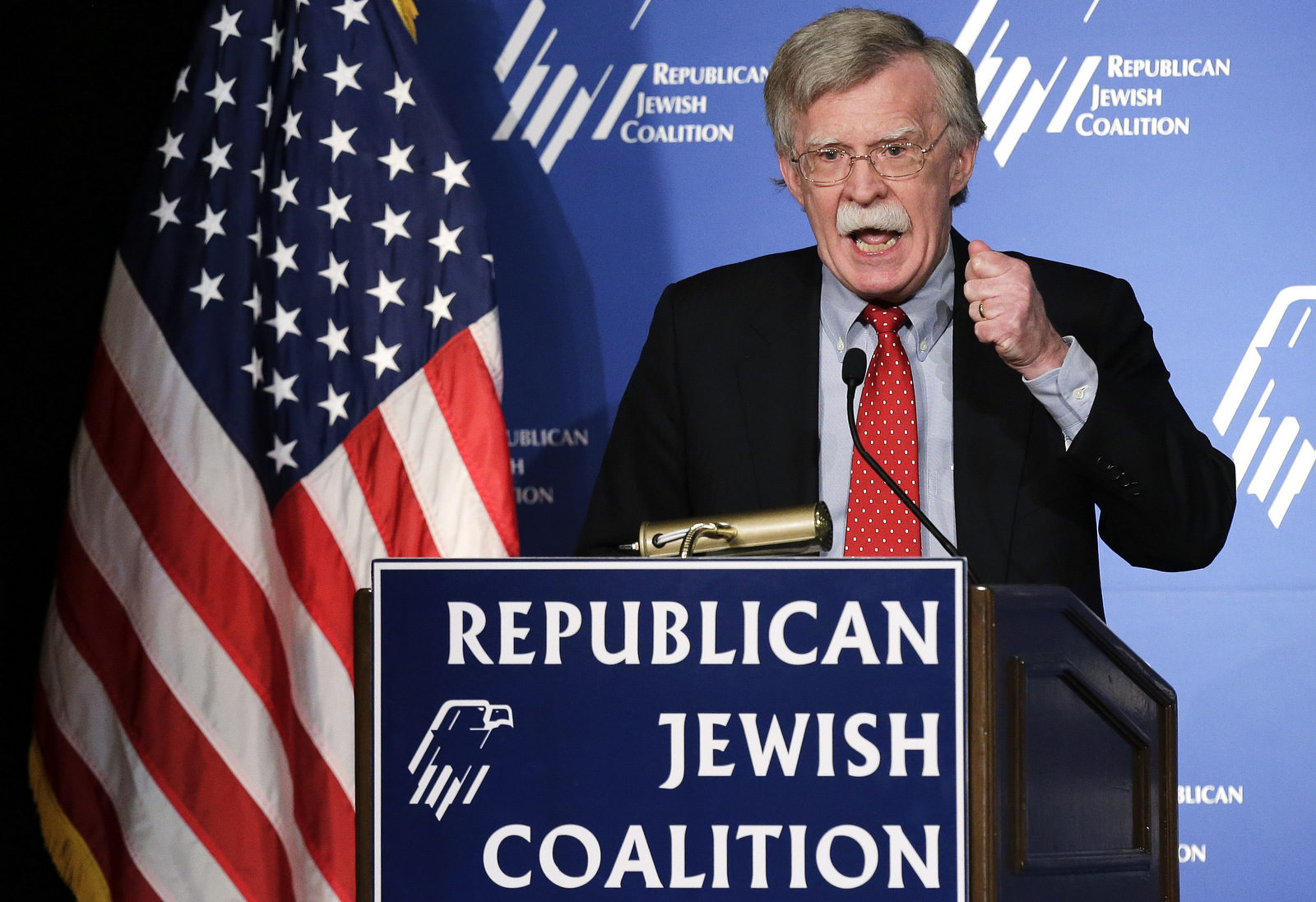
Though the domestic reaction to Bolton's appointment was rather mixed, top ministers of the right-wing Israeli government lavished praise upon the soon-to-be National Security Adviser, calling him "one of the most outstanding" allies to Israel in U.S. politics, and a "true friend" to the Jewish state who brings "great experience and original thinking" to "the most sympathetic administration toward Israel of all time."
Indeed, Bolton's ties to Israel are as deep as they are long-standing - so deep that some have posited that his commitment to extreme Zionism has led him to betray the national interest of his own country on more than one occasion.
For instance, Danny Gillerman, the former Israeli ambassador to the UN, recently noted that Bolton, when serving in the Bush administration, was prone to "direct fire on his own forces," - i.e., the U.S. government - in order to advance the goals of the Israeli government. Gillerman, speaking on the Israeli radio program Galei Tzahal this past Sunday, stated:
[W]hen the State Department - then headed by Condoleezza Rice, who wasn't so friendly to Israel even though the Bush Administration was very friendly - was about to either make a decision, or not abstain, or not veto, or to advance something that was against us [Israel], Bolton would call me, and he would say 'Danny, you've got to call the prime minister right now, in order for him to phone the president to stop this.'"In addition, Bolton garnered a reputation - as well as the ire of State Department officials at the time - for violating State Department protocol by acting unilaterally in matters of diplomacy to negotiate privately in Israel. The New York Times reported in 2005 that Bolton traveled to Israel without the required State Department clearance in 2003 and 2004 in a direct effort to undermine then-Secretary of State Colin Powell. As journalist Gareth Porter noted:
Bolton's numerous private and unannounced visits to Israel entailed meetings with officials of Mossad, Israel's intelligence service, including Meir Dagan, then Mossad's director.[A]t the very moment that Powell was saying administration policy was not to attack Iran, Bolton was working with the Israelis to lay the groundwork for just such a war."
Despite his flagrant violations of government rules, Bolton remained the main liaison between the U.S. and Israeli governments under Bush.
Bolton has pressured Israeli officials to attack Iran even when calling for such an attack was not the U.S. government's position. According to Shaul Mofaz, former Israeli defense minister, Bolton "tried to convince me that Israel needs to attack Iran," which Mofaz recently asserted was not "a smart move - not on the part of the Americans today or anyone else until the threat is real."
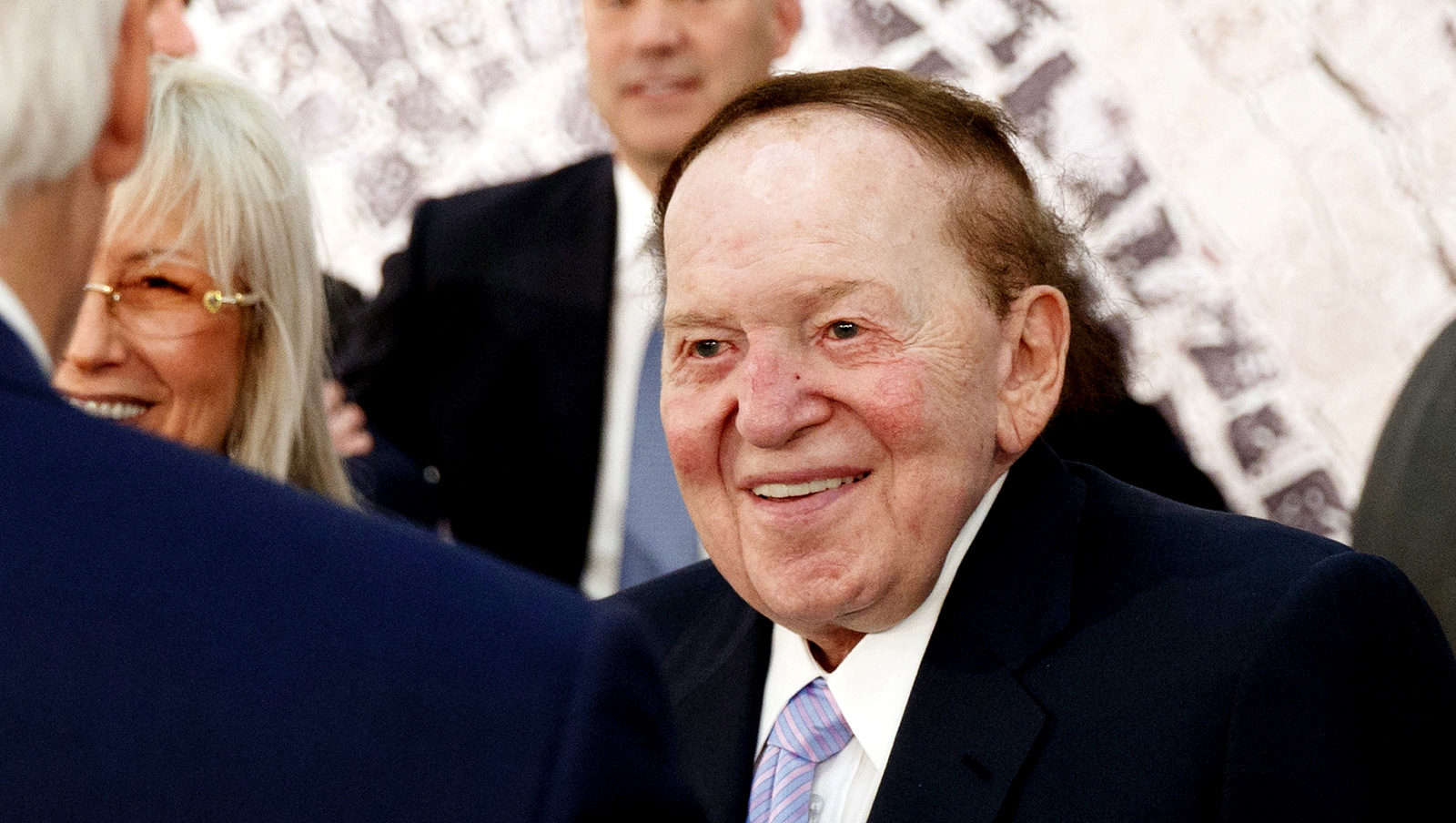
Billionaire Adelson gets his way
Bolton's commitment to the Israeli state has manifested in other ways. For instance, he has remained a constant critic of Palestine's right to self-determination, calling an independent Palestinian state a plot "of Israel's opponents to weaken and encircle the Jewish state." Bolton has called for the Gaza strip and the West Bank to be given to Egypt and Jordan, respectively. This approach, nicknamed the "Three State solution," would eliminate any hopes for Palestinian sovereignty by giving Palestinian territories to two U.S.-allied countries that enjoy cordial relations with Israel, making this solution preferable for Israel hard-liners that wish to see an end to the Palestinian Authority and Hamas.
Bolton has also praised President Trump's recent decision to recognize Jerusalem as Israel's capital, and relocate the U.S. embassy in Israel accordingly - a policy change allegedly orchestrated by pro-Israel Republican mega-donor Sheldon Adelson - as an "injection of reality." In addition, he has strongly promoted the construction of illegal settlements on Palestinian land, stating recently that Israelis "ought to be able to build houses wherever they want to, including all of the lands of Judea and Samaria [Palestine's West Bank]."
Given his embrace of extremist Zionism, it is no surprise that Bolton has found himself replacing H.R. McMaster, whose ouster was orchestrated by billionaire Republican donor Sheldon Adelson. Bolton has long been promoted by Adelson, as the latter personally intervened to keep Bolton in contact with the Trump throughout his presidency and had lobbied soon after Trump's election to have Bolton appointed to his cabinet. Like the embassy move to Jerusalem, Adelson has again gotten his wish.
Adelson's push to have Bolton installed comes at a crucial time, as Israel is currently preparing for war on "three fronts" - Palestine, Lebanon, and Syria - and is actively lobbying for American aid and involvement in launching that war. With Bolton in the Trump administration, along with numerous other staunch Israel allies in key government positions, Israel will likely get that aid in addition to American troops fighting alongside them, even if Israel is the aggressor in the imminent conflict.
The timing of Bolton's appointment as National Security Adviser is also noteworthy, as it comes little over a month before the U.S. embassy is set to move to Jerusalem, when tensions between Israel, Palestine and its neighbors will be at their highest and when a war is most likely to break out. Bolton is set to ensure strong U.S. support for any Israeli military action that takes place during this time, even though Israel is explicitly planning to target civilians and civilian infrastructure.
* * *
Part 2:
Regime Change, Partition, and "Sunnistan": John Bolton's Vision for a New Middle East
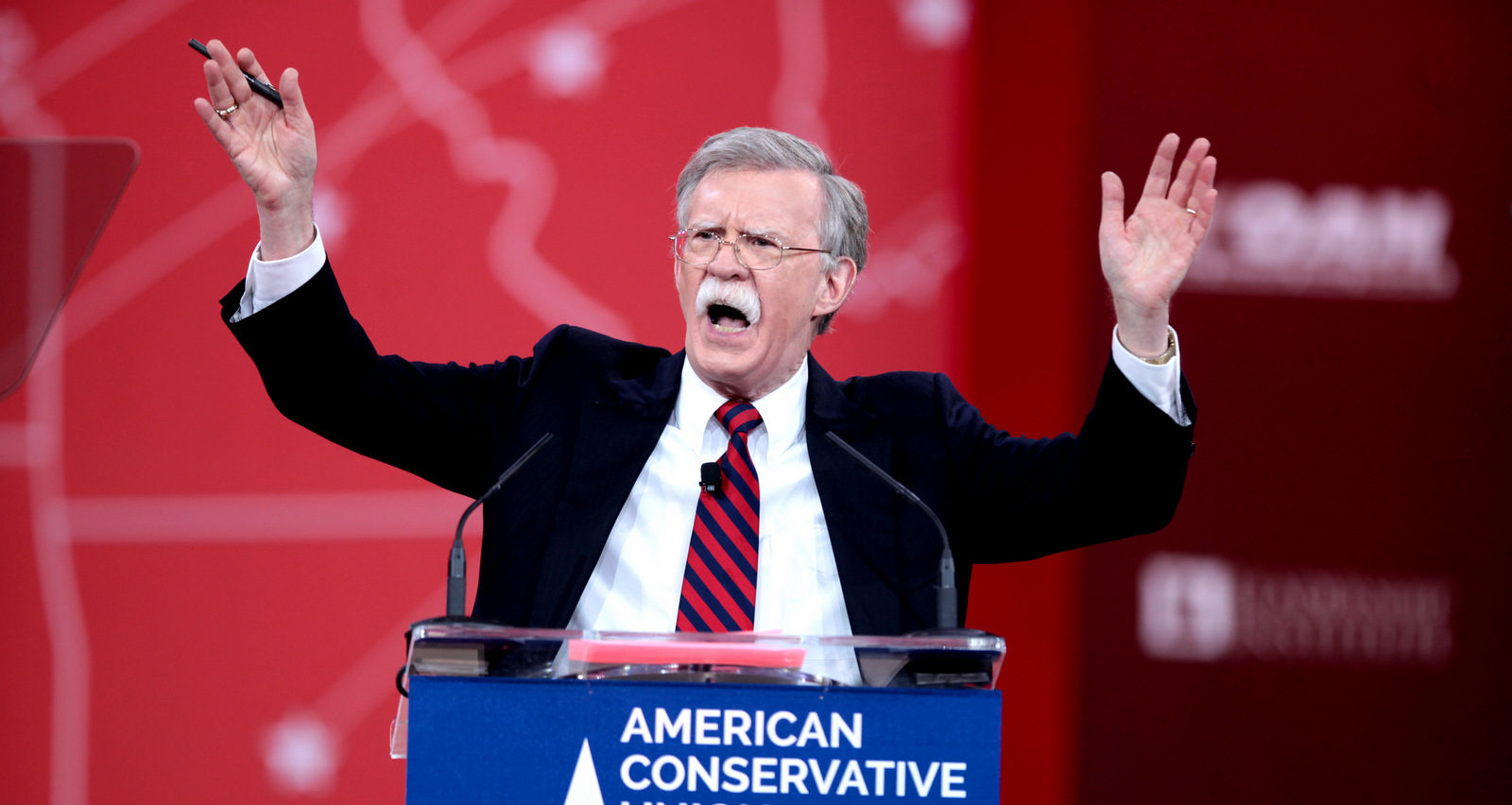
The announcement that John Bolton - perhaps the best known advocate for war with Iran in American politics - would soon replace H.R. McMaster as National Security Adviser received mixed reactions within the United States and, as MintPress recently noted, great praise from Israel. However, news that Bolton would soon have a key role in the Trump administration caused panic among Iranians and Iranian-Americans as well as anti-war advocates.
In response to Bolton's appointment, Trita Parsi, the president of the National Iranian American Council, issued a statement, warning:
Donald Trump may have just effectively declared war on Iran. With the appointment of John Bolton, and nomination of Mike Pompeo at State, Trump is clearly putting together a war cabinet."However, regime change in Iran through war is just a stepping stone in Bolton's plan to create a "new Middle East" by redrawing the borders of both Iraq and Syria and ending all possible obstacles - like an independent Iran - to fundamentally changing the region's balance of power.
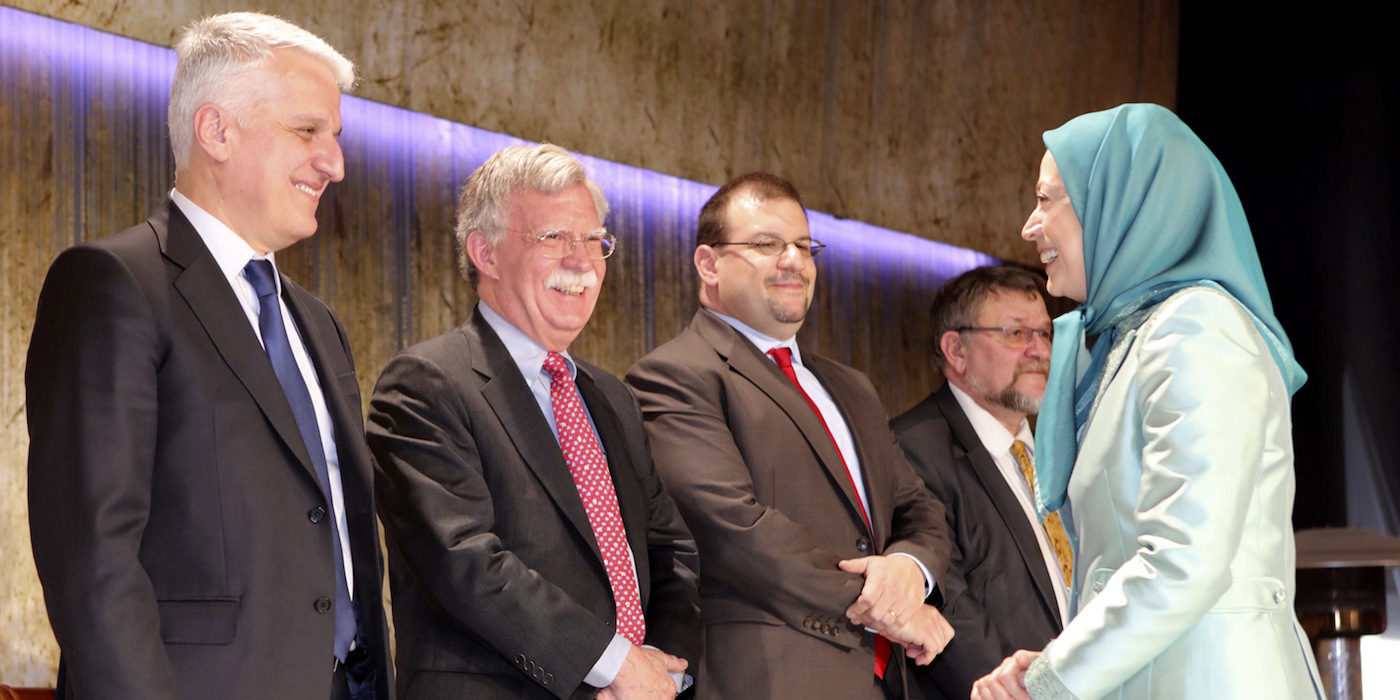
Though some may dismiss Parsi's response as exaggerated or bombastic, Bolton's actions and rhetoric over the years have made it clear that he is adamant in his desire to topple the current government of Iran by any means necessary.
Indeed, Bolton's past indicates a near obsession with clearing the way for U.S. military action against Iran. As journalist Gareth Porter recently noted, from 2002 to 2004, while he was the Bush administration's key policymaker on Iran, Bolton - by flouting State Department protocol and taking several unannounced trips to Israel - "actively conspired [...] to establish the political conditions necessary for the administration to carry out military action."
Bolton's behind-the-scenes dealings led Iran's nuclear program to become a matter overseen by the United Nations Security Council, as opposed to the International Atomic Energy Agency (IAEA). He engineered that handoff because the then-director general of the IAEA, Mohamed El Baradei, posed an obstacle to framing Iran as a nuclear weapons threat. Bolton eventually used fabricated evidence, provided to him by an Iranian terrorist group that Bolton still openly supports, to convince the United Nations that Iran was secretly developing a nuclear weapon.
That terror group, Mujahedeen Khalq (MEK), was listed a "Foreign Terrorist Organization" by the United States government from 1997 and 2012 and, in the past, has conducted terror acts to accomplish its goals, killing Iranians as well as Americans in the process. More recently, MEK has worked with Israeli Intelligence to murder Iranian scientists. Since its removal from the government's terror group list, MEK has sought to reinvent itself as a "moderate" Iranian opposition group even though it has next to no support within Iran and has consistently been characterized as both "cultish" and "authoritarian."
In its bid to become the likely successors to the current Iranian government were Western-backed regime change to take place, MEK has garnered a slew of admirers across both parties of the U.S. political establishment due to its generous speaking fees. That is especially true in the Trump administration, as several key figures in his cabinet and advisers to the President have been linked to the group. For instance, Elaine Chao, Trump's Transportation Secretary, received $50,000 in 2015 for a five-minute speech.
Bolton is just one more of the group's many high-profile "admirers" in the U.S. At a MEK gathering in France last year, Bolton told supporters and members of the group:
"The declared policy of the United States should be the overthrow of the mullahs' regime in Tehran. [...] The behavior and the objectives of the regime are not going to change and, therefore, the only solution is to change the regime itself. [...] And that's why, before 2019, we here will celebrate in Tehran."
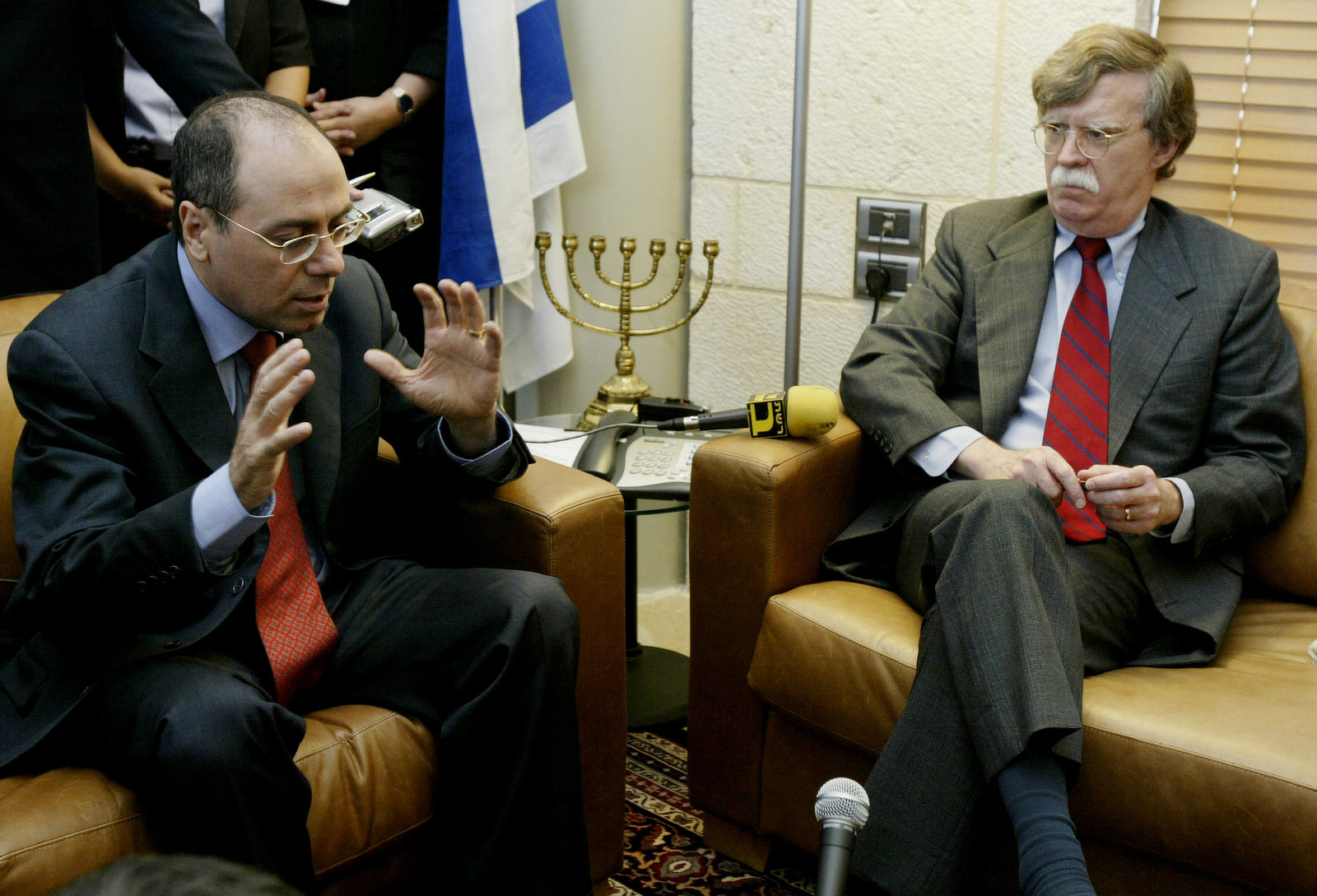
Since he first made the accusation in 2003, Bolton has continued to accuse Iran of having a covert nuclear weapons program, an accusation for which there is no evidence. Indeed, both Israeli intelligence and U.S. intelligence have long acknowledged that Iran has had neither the intention nor the capability of developing a nuclear weapon. Despite this, Bolton has called repeatedly to preemptively bomb Iran in order to stop a weapons program that does not exist.
Since Trump's election, Bolton has directly influenced Trump's Iran policy as well as Trump's recent decision to unilaterally scrap the Iran nuclear deal this upcoming May, despite Iran's total compliance with the agreement.
Reports have also indicated that Bolton was responsible for what some regarded as the most threatening line in Trump's debut speech at the United Nations, where he warned that he would pull the U.S. out of the deal if Congress and U.S. allies did not agree to renegotiate it entirely. According to Politico:
The line was added to Trump's speech after Bolton, despite Kelly's recent edict [restricting Bolton's access to Trump], reached the president by phone on Thursday afternoon from Las Vegas, where Bolton was visiting with Republican mega-donor Sheldon Adelson. Bolton urged Trump to include a line in his remarks noting that he reserved the right to scrap the agreement entirely, according to two sources familiar with the conversation."With Bolton now set to have a top position in Trump's administration, his influence on the President's decision-making is likely to grow.

However, beyond Bolton's past and rhetoric, his commitment to the Israeli government - even when that commitment directly conflicts with the positions of the U.S. government - confirms that war may well be on the horizon. For instance, Danny Gillerman, the former Israeli ambassador to the UN, stated last Sunday that Bolton, while he was serving in the Bush administration, was prone to "direct fire on his own forces," - i.e., the U.S. government - in order to advance the goals of Israel.
In addition, Bolton's close relationship with Republican billionaire donor Sheldon Adelson, who has financially backed both Israeli Prime Minister Benjamin Netanyahu and U.S. President Donald Trump, also indicates that war with Iran is on the agenda. As MintPress recently reported, Adelson has long promoted Bolton and is the man largely responsible for H.R. McMaster's exit and Bolton's subsequent appointment. Unfortunately, Adelson's views on U.S. foreign policy, particularly in regard to Iran, are extremely dangerous.
For instance, while the negotiations that eventually led to the Iran nuclear deal were taking place, Adelson advocated for a U.S. nuclear attack on Iran without provocation, so the U.S. could "impose its demands [on Iran] from a position of strength."
Per Adelson's plan, the U.S. would drop a nuclear bomb in the middle of the Iranian desert and then threaten that "the next one is in the middle of Tehran" to show that "we mean business." Tehran, Iran's capital, is home to nearly 9 million people with 15 million more in its suburbs. Were Tehran to be attacked with nuclear weapons, an estimated 7 million would die within moments, significantly more than the number of Jews killed during the Holocaust of World War II.
Any sort of diplomatic engagement with Iran, according to Adelson, is "the worst negotiating tactic I could ever imagine."
In other words, Adelson - who is currently one of the most influential men in U.S. and Israeli politics - has called for dropping nuclear weapons on a country, including its heavily populated capital city, for no reason other than to show that the U.S. "means business." Given their close relationship, it is unsurprising - but nonetheless alarming - that Bolton has more or less echoed Adelson's positions, calling for preemptive strikes against Iran by either the U.S. or Israel and flatly rejecting a diplomatic solution.
Adelson - as well as the far-right Israeli government and, by extension, Bolton - wants regime change in Iran for two main reasons. First, Iran is a major supporter of Palestine and the Palestinian cause. Palestine resistance group Hamas has consistently praised Iran's aid to Palestine, and Iran's foreign policy - a foreign policy born out of Iran's many decades under the brutal rule of a U.S.-backed dictatorship - has demonstrated time and again its support of self-determination and its resistance to U.S. empire. Of course, Israel, as well as the U.S., are diametrically opposed to self-determination, particularly in Palestine.
Second, Iran has become a regional economic power, even when it was under heavy sanctions, which led the country to diversify its economy. Since the sanctions were lifted after the adoption of the Iran nuclear deal, Iran's economic clout has continued to grow, as have its natural gas exports. In addition, Iran is set to become a major supplier of natural gas to the European Union, with European gas companies recently leading the push to develop the world's largest gas field - jointly held by Iran and Qatar. Thus, Iran is an economically resilient and powerful country that is not only fully capable of resisting the ambitions of Israel - as well as the Gulf monarchies that have become increasingly allied with Israel - but also intent on doing so.
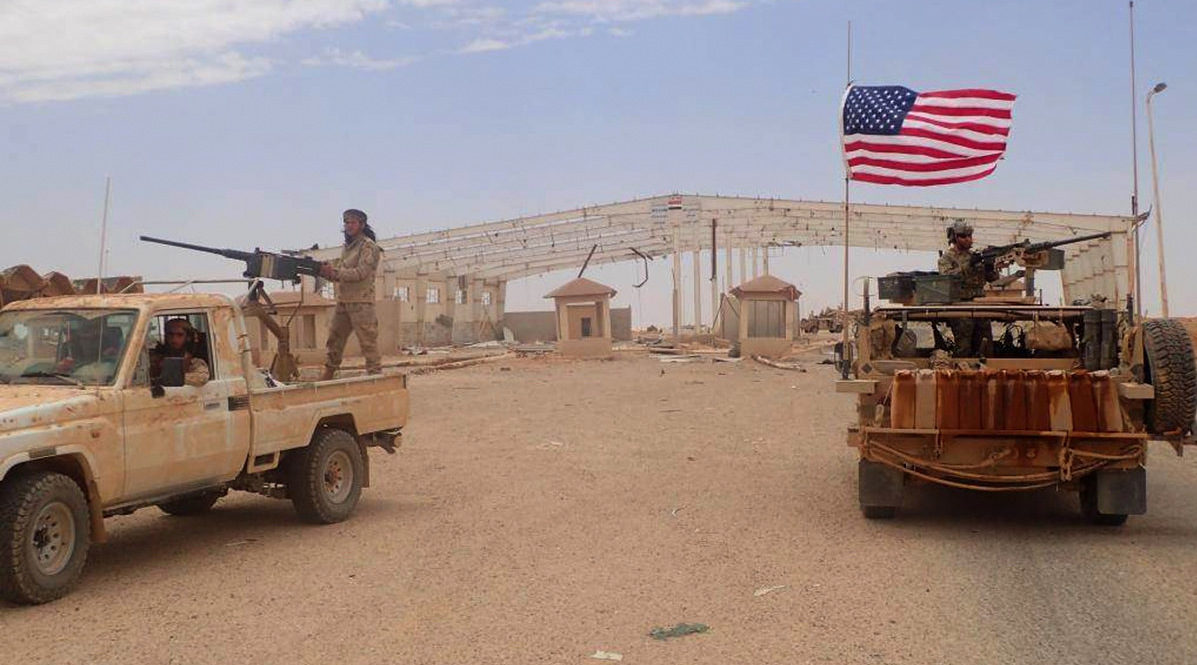
Beyond pushing for regime change in Iran, John Bolton has long demonstrated his commitment to helping Israel and its allies entirely remake the Middle East and thus fundamentally change the region's balance of power. A key part of this has been the partition of other secular, independent nations in the Middle East, namely Syria and Iraq. It is largely for this reason that Bolton, a major advocate of the U.S. invasion of Iraq, still stands by the disastrous war - because it was an essential precursor to Iraq's partition.
A major part of the groundwork for partition, the invasion of Iraq, and the current Syrian conflict, was laid out in the neo-conservative manifesto "A Clean Break," whose lead author Richard Perle is Bolton's mentor, and who, along with Bolton, later co-founded the Project for the New American Century (PNAC). Another co-author, David Wurmser, also went on to become an advisor to Bolton.
The title of the document comes from its suggestion that Israel make a "clean break from the slogan 'comprehensive peace' to a traditional concept of strategy based on the balance of power." The manifesto states:
Israel can shape its strategic environment, in cooperation with Turkey and Jordan, by weakening, containing, and even rolling back Syria. This effort can focus on removing Saddam Hussein from power in Iraq - an important Israeli strategic objective in its own right - as a means of foiling Syria's regional ambitions.""A Clean Break" also calls for "reestablishing the principle of preemption" - i.e., preemptive war - as well as the creation of a "new Middle East."
The 2003 invasion of Iraq that Bolton helped manifest (and that he continues to support) fulfilled several of the objectives laid out in "A Clean Break," by removing Saddam Hussein from power and altering the region's "balance of power." Yet, now, with Saddam long gone and Syria weakened after years of fighting off foreign-funded proxies, the next step needed to cement this "new Middle East" is the partitioning of both Syria and Iraq.
The first argument for partitioning Iraq was made in 1982 by Zionist strategist Oded Yinon, whose plan - often called the Yinon plan or the plan for "Greater Israel" - calls for dividing Iraq into separate statelets for Sunnis, Shiites and Kurds. It similarly calls for the division of other secular Arab states, like Syria, into smaller states divided along ethnic or sectarian lines that are constantly at war with each other in order to ensure that Israel "becomes an imperial regional power."
Unsurprisingly, Bolton has, since leaving his post in the Bush administration, consistently advocated for partitioning both Syria and Iraq. In 2014, Bolton asserted that Iraq was inevitably "headed toward partition." In 2015, on Fox News, Bolton stated:
I think our objective should be a new Sunni state out of the western part of Iraq, the eastern part of Syria run by moderates or at least authoritarians who are not radical Islamists."A few months later, Bolton - in a New York Times op-ed - detailed his plan to create the Sunni state out of northeastern Syria and western Iraq, which he nicknames "Sunni-stan." He asserts that such a country has "economic potential" as an oil producer, would be a "bulwark" against the Syrian government and "Iran-allied Baghdad," and would help defeat Daesh (ISIS). Bolton's mention of oil is notable, as the proposed area for this Sunni state sits on key oil fields that U.S. oil interests, such as ExxonMobil and the Koch brothers, have sought to control if the partition of Iraq and Syria comes to pass.
Bolton also suggested that Arab Gulf States "could provide significant financing," adding that "the Arab monarchies like Saudi Arabia must not only fund much of the new state's early needs, but also ensure its stability and resistance to radical forces." He fails to note that Saudi Arabia is one of the chief financiers of Daesh and largely responsible for spreading "radical" Wahhabi Islam throughout the Middle East.
Notably, Bolton directly mentions who would benefit from this partition, and it certainly isn't the Syrians or the Iraqis. "Restoring Iraqi and Syrian governments to their former borders," Bolton writes, "is a goal fundamentally contrary to American, Israeli and friendly Arab state interests."
Control of northeastern Syria, currently occupied by U.S. forces, is set to be given to Saudi Arabia if the Saudis commit to spending $4 billion to "rebuild" the area, a first step towards preventing the reunification of Syria and creating an "independent" sectarian state. Bolton, as national security adviser, is likely to push for the creation of a new sectarian state out of Syrian and Iraqi territory, now that the groundwork has been laid and the path largely cleared to building a "new Middle East." However, as previously mentioned, Iran is currently the only country in the region with the potential to foil the plan to fundamentally reshape the Middle East.
Bolton dangerous and in a hurry
Bolton as Trump's National Security Adviser not only means that war with Iran is imminent. It is a portent of coming attempts to entirely remake the Middle East in service to Israel's ambitions and quest to become an "imperial regional power."
However, given Bolton's recent statements, neither war with Iran nor attempts to redraw the borders of the Middle East are events to be delayed to some distant future. Indeed, Bolton recently promised Iranian opposition groups that regime change in Iran would occur before next year. Not only that, but the groundwork for partitioning Iraq and Syria has already been laid, thanks to the 2003 invasion of Iraq and the Trump administration's current attempts to turn control of occupied Syria over to the Saudis.
Thus, Bolton's appointment is as timely as it is dangerous. As Richard Painter, the former chief White House ethics lawyer in the George W. Bush administration, recently remarked:
Hiring [Bolton] as the president's top national security advisor is an invitation to war, perhaps nuclear war. This must be stopped at all costs."* * *
Part 3:
Bolton's Regime-Change Mentality Includes Latin America Among His Targets

While President Trump's appointment of John Bolton to the position of National Security Adviser has sent shockwaves throughout the country, most of the concern about his likely effect on U.S. policy has been focused on the Middle East as well as the Korean peninsula. Bolton's appointment has, however, also caused concern elsewhere, particularly in Latin America.
Though he is best known for promoting the invasion of Iraq on false claims of "weapons of mass destruction," Bolton has also made similar false claims against Cuba, stating that the island nation had a "developmental offensive biological warfare program" in order to include it among the "Axis of Evil" countries. Not only that, but Bolton has also conjured up false claims of Venezuela protecting Iranian "smugglers" in a bid to target its current government. More recently, he has called for "greater U.S. involvement" in the "critical" region of Latin America.
Bolton's past, along with his recent statements, have made many Latin Americans uneasy. As a former National Security Council member during the Obama administration told the Miami Herald,
He [Bolton] is a warmonger and Latin Americans get nervous when American presidents tend to lean toward military versus diplomatic solutions. It's a militaristic style that won't go down well in Latin America."
Bolton's troubling role in Iran-Contra cover-up
The Iran-Contra affair, perhaps the best-known scandal of the Reagan era, saw the U.S. government facilitate the sale of arms to Iran, then under a weapons embargo, in order to covertly fund the Contras - "rebels" who launched a campaign of terror in Nicaragua in attempts to oust the leftist Sandinista government - after U.S. support for the group had been outlawed by Congress. When the scandal broke, many Reagan officials sought to mitigate the damage and launched a cover-up.
One of those officials who played a key role in hiding U.S. support for death squads in Nicaragua was John Bolton, then serving as Assistant Attorney General under Edwin Meese. When then-Senator John Kerry agreed in May 1986 to provide the Justice Department with information compiled by his staff showing that Nicaraguan contras and their U.S. backers had "engaged in criminal wrongdoing," Bolton at the time had promised that such evidence would be "vigorously and expeditiously investigated."
However, Bolton buried the information - refusing to comply with congressional requests for the information he had received from Kerry and other sources, and also refusing to testify. Bolton claimed that the information requested by the House Judiciary Committee was "highly classified" and that no member of the committee has the "proper clearances" to review it. Bolton continued to block government probes by refusing to cooperate with document release requests and invoking executive privilege. He later referred to efforts to destroy information allegedly pertaining to the Contra affair as "house cleaning" chores so the George H.W. Bush administration could come in with "a clean slate." Bolton then served in the State Department during Bush's presidency.
In addition, John Bolton is a long-time associate of the D.C.-based Covington & Burling law firm, which has a sordid history of lobbying for coups in Latin America. Most recently, Covington came under scrutiny for its role in the 2009 military coup that ousted Manuel Zelaya in Honduras. When Zelaya raised the minimum wage, Chiquita fruit company paid $70,000 in lobbying fees to Covington, whose long-time partner - Eric Holder - was serving as Attorney General at the time. Chiquita, whose previous incarnation successfully lobbied for the 1954 military coup in Guatemala on similar grounds, saw their lobbying pay off when the U.S.-backed military coup in 2009 removed Zelaya from power. Hillary Clinton, then-Secretary of State, has openly admitted the role of the Obama administration in the coup.
Bolton extended WMD lies to Cuba
In addition to Bolton's past connections to scandals involving Latin America, he has had a direct role in pushing for military invasions based on false claims of "weapons of mass destruction," similar to those that led to the invasion of Iraq.
Bolton, long an advocate for increasing the already strong restrictions against Cuba that were in place at the time, lobbied the George W. Bush administration to add the island nation its "axis of evil" while serving as Undersecretary of State for Arms Control and International Security. The justification that Bolton offered for adding Cuba to the list was his claim that Cuba was covertly developing biological weapons. In a speech to the conservative think-tank the Heritage Foundation, Bolton asserted that "Cuba has at least a limited offensive biological warfare research and development effort."
He originally wrote the speech, however, as saying that Cuba "has a developmental offensive biological warfare program and is providing assistance to other rogue state programs," but concern from other high-ranking officials in the State Department forced him to tone it down. Price Floyd, then a State Department media-affairs official, recalled that there was "no evidence" for Bolton's claim. Three years later, U.S. intelligence concluded that "it is unclear whether Cuba has an active offensive biological warfare effort now, or even had one in the past."
After making this baseless accusation, Bolton tried to pressure intelligence officers and government analysts to endorse his statements. Bolton did not take rejection well and, in one case, when an analyst at the State Department's Bureau of Intelligence and Research (INR) refused to endorse the statement, Bolton scolded him in "a red-faced, finger-waving rage" and tried to have the analyst reassigned.
Instead of being demoted or fired for his distortion of intelligence and abuse of subordinates and other who disagreed with him, Bolton was instead promoted and in 2005 became U.S. ambassador to the United Nations, where he regularly criticized Nicaragua, Cuba and Venezuela as "undermining U.S. interests throughout the region."
Having supported a coup in Venezuela before, will Bolton do so again?
Bolton's most belligerent stance against any country in Latin America has been reserved for Venezuela. Bolton has long criticized the Venezuelan government, first under Hugo Chávez whose presidency he called a "comic-opera," and then under Chávez's successor, Nicolás Maduro, whom he has called "dimwitted." While serving in the State Department in 2002, Bolton actively favored the failed U.S.-backed coup against Chávez.
Since ending his stint as ambassador to the United Nations, Bolton has accused Venezuela of harboring and collaborating with Iranian criminals and "smugglers." During a 2013 hearing, Bolton claimed that Iran was operating in Venezuela to avoid international scrutiny.
"These are expert smugglers with - the largest Iranian diplomatic facility in the world is in Caracas, Venezuela [...] they are laundering their money through the Venezuelan banks." He has since asserted that Iran uses Venezuela "to retain access to the country's extensive uranium reserves."
Bolton has never presented any evidence to support these claims.
Bolton has also claimed that the Lebanese political party Hezbollah is a "murky but continuing threat" in Venezuela. Claims of Hezbollah's involvement are based solely on the ancestry of Venezuelan Vice President Tareck El Aissami, who is of Lebanese heritage. Bolton subtly admits this, stating that Hezbollah's alleged presence in Venezuela is due to "the long history of expatriate Middle Eastern trading networks in Latin America."
These baseless claims invented by Bolton regarding illicit activities of Iranian and Lebanese origin taking place in Venezuela have become frequent talking points of the Trump administration. Last August, Mike Pompeo - then head of the CIA - asserted that Venezuela was overrun with Iranians, Hezbollah and Cubans.
In addition, U.S.-backed regime change in Venezuela - which Bolton also advocates - has become increasingly likely under Trump. In February, Rex Tillerson - then serving as Secretary of State - stated that he believes it is likely that the Venezuelan military will remove Venezuelan president Nicolás Maduro, suggesting that the military could be an "agent of change" in the country. Prior to Tillerson's statements, Trump threatened to invade Venezuela and Vice President Pence had claimed Venezuela as a "threat" to the U.S.
However, those who think Tillerson's oblique calls for a military coup in Venezuela will fade now that he has left his post at the State Department are likely mistaken. Pompeo, who will replace Tillerson, hinted last year while serving as CIA director that the agency was working to change the elected government of Venezuela.
In addition, Senator Marco Rubio (R-FL), who himself recently called for the Venezuelan Armed Forces to rebel against the country's government, praised Bolton's appointment. "I know John Bolton well," Rubio stated, "and believe he is an excellent choice who will do a great job as national security adviser."
Objectivity and respect for international law not likely
Bolton's appointment to the position of National Security Adviser - a highly placed official expected to marshal national security information and present it objectively to the president - has caused shockwaves within the United States and beyond. Bolton's track record of both blocking and distorting intelligence that doesn't suit his agenda does not bode well for those countries that Bolton has long targeted for regime change, as it suggests that he will do anything to topple governments he doesn't like, even if it means both presenting information selectively rather than objectively and "disparaging international law."
As a result, Bolton's history and recent statements show that he has no qualms with returning to the U.S.' dark and bloody history in meddling in the affairs of Latin American countries.
Whitney Webb is a staff writer for MintPress News who has written for several news organizations in both English and Spanish; her stories have been featured on ZeroHedge, the Anti-Media, and 21st Century Wire among others. She currently lives in Southern Chile.
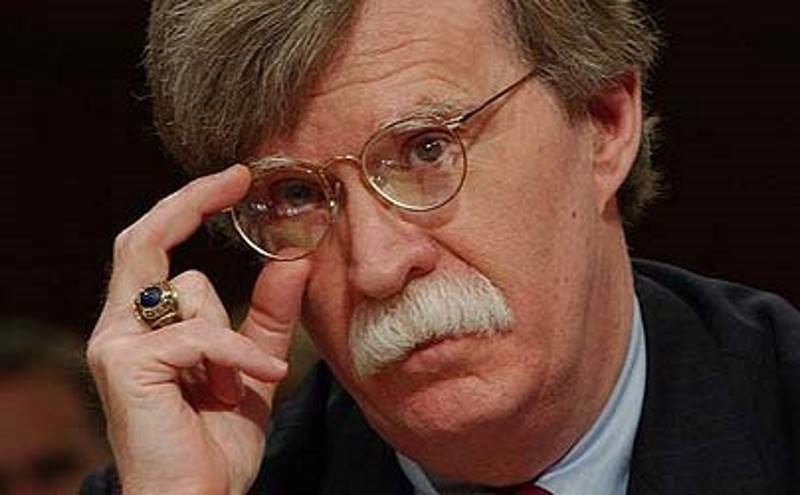
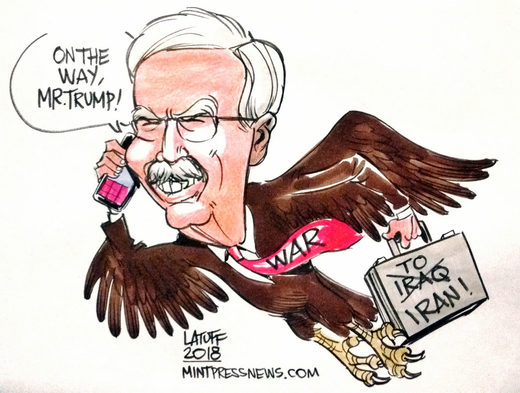



There are 30 months before the fate of the world will be sealed with EITHER Destruction OR the Universal Brotherhood of Man, ̈ he said. ̈The 30 month figure concerned a Treaty between Israel and Egypt. ̈
NOTE: This does not say Armageddon happens in 30 months from the article.
Not 29 or 31, but exactly 30 months later , in March 1979, history shows a Treaty between Israel and Egypt was signed, the Camp David Accord. History shows negotiations broke down on the 12th day and no Treaty was to be signed. Begin and Sadat were leaving.
It was on the 13th Day, as in the date of the Article and the picture accompanying it, an unexpected window of opportunity appeared and opened the way for the Treaty to be signed.
This signified the Universal Brotherhood part of the quote.
The 1979 Iranian Revolution happened a month earlier, and with the Trump/Bolton/Pompeo Axis of War now in place, the Destruction part in the 1976 newspaper record might be happening soon?
“He came to town for the Republican National Convention and will stay until the election in November TO DO GOD'S BIDDING: To tell the world, from Kansas City, this country has been found wanting and its days are numbered [...] He gestured toward a gleaming church dome. “The gold dome is the symbol of Babylon,” he said.” [...] He wanted to bring to the Public’s attention an “idea being put out subtly and deceptively” by the government that we have to get prepared for a war with Russia.”
Not many will recognize the 1st part of those words from 'The Writing on the Wall' in Daniel 5 of the Bible, recording the demise of Babylon/Iraq and the rise of Persia/Iran. It's all happening NOW.
It looks to me, politically, this World is opting for the Destruction part, sealing the Fate.
[Link]